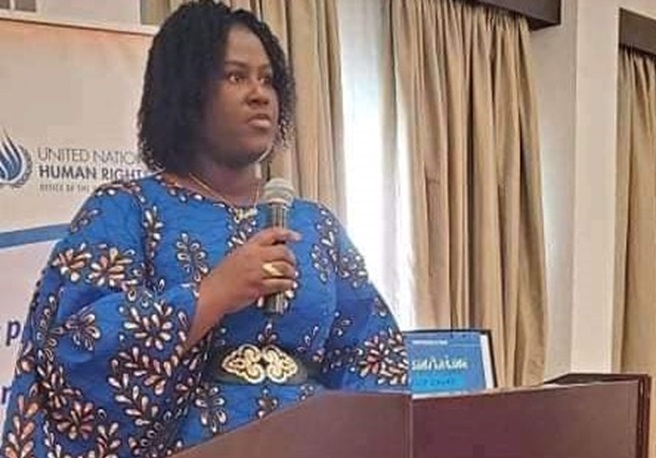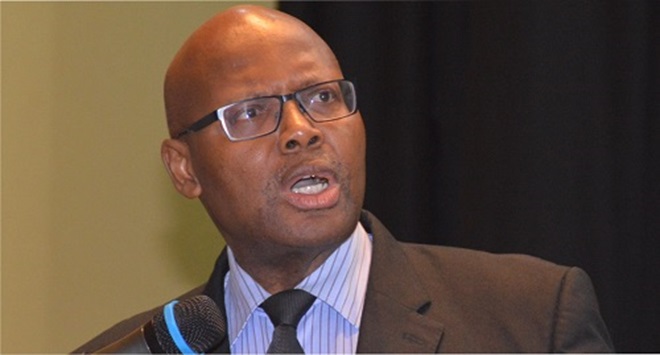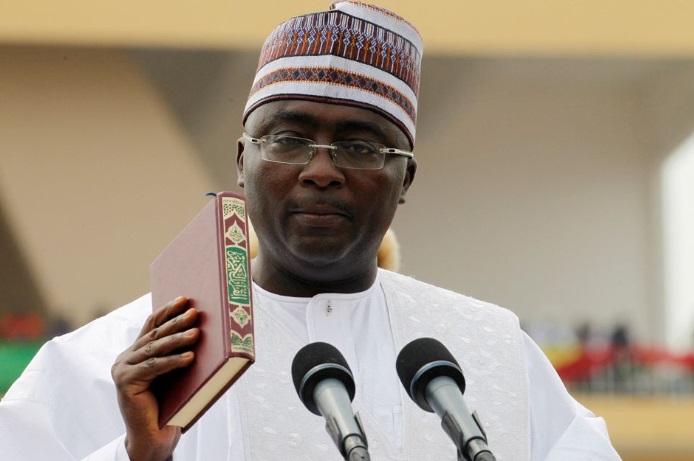MONROVIA – Madam Loretta Alethea Pope-Kai, Chairperson of the National Civil Society County of Liberia (NCSCL), has reported many of the barriers confronting women’s political participation in the body politics of Liberia, with specific reference to the just ended 2023 Presidential and Legislative Elections.
In her presentation during a zoom meeting, Madam Pope-Kai asserted that with statistics of the October 10 poll revealing just 11 or 10.68% of the 150 women legislative candidates being successful, that simply implies that nothing has changed and it even suggests the level of women’s political participation in the legislature is stagnated.
“As you all may know, three democratic elections had been held in 2005, 2011, and 2017 since Liberia civil war ended. In January 2018, the first democratic transition since 1944 took place. This is Liberia’s fourth elections since the war. Sadly, the results from all the three elections revealed the level of women’s political participation remains dismally low, usually declining. The results from the just ended legislative elections revealed only, 11 or 10.68% of the 150 women legislative candidates won. This means nothing has changed and it even suggests the level of women’s political participation in the legislature is stagnated,” explained the NCSCL boss, who presented on the topic: “An Assessment of the Electoral Processes in Liberia with Emphasis on Women Participation in Politics.”
She pointed out that the different stages or processes, namely; legal framework planning, budgeting, and resource mobilization, training, voter’s education, registration and nomination, voter’s and civic education, electoral campaign, Election Day, and post-election review are designed and administered significantly in a way that impact the extent to which women partake in the country’s electoral politics.
“It therefore follows that addressing gender imbalances and inequality to promote women’s political participation require deliberate actions to assess, analyze, and take actions in order that the structural and institutional barriers to women’s political participation are removed. My assessment and analysis will attempt to briefly scope all the stages in the country’s electoral cycle.”
Regarding the legal framework, Madam Pope-Kai noted that there is still limited or no legal provisions such as temporary special measures to address the historic disadvantages women continue to face in politics.
Regrettably based upon this, she maintained that the much-coveted 4.5 provision in the proposed New Election Law was not passed by the President of Liberia, stressing that this tends to entrench the practices of male dominance, hegemony, and tokenism.
“As a result, we observed at the stage of candidates’ registration, nomination, and accreditation that of the more than 210 women aspirants that desired to contest, 150 actually registered and majority contested as independent with no support of political parties,” Madam Pope-Kai narrated.
At the planning, budgeting, and resource mobilization stage, she indicated that there were seemingly no deliberate attempts on the part of political parties to scout potential women aspirants and leaders.
While the Coalition for Democratic Change (CDC), the Unity Party, and Alternative National Congress made impressive commitments to include a minimum of 40%, 30% and 50% or so of women candidates on the candidate list, the CSO Council head cried out how the women of Liberia were let down again.
“It was reported that political parties who expressed willingness for women aspirants to run on their tickets refused to allow those women to contest in districts they believe they could be more competitive in. It remains to be seen whether any political party have political training and empowerment program for women.”
“Outside these parties, few local organizations especially Civil Society organizations continue to fill the void, training women aspirants, candidates, campaign workers, and young political leaders. My assessment is that the legal frameworks of NEC and political parties alike seemingly remain largely gender insensitive.”
Commenting on the Voter’s and civic education or CVE, Madam Pope-Kai expressed that the process was seemingly weak, as a result of untimely donors’ assistance, limited initiatives by national NGOs due to limited funding and delayed delivery of CVE materials to NGOs.
“There were more than 114,000 invalid votes. One can only surmise, with high confidence, that invalid votes cast was likely high among women, who are more illiterate than their male counterpart. On Election Day, many of our partners reported that women voters such as breast feeding/lactating mothers, pregnant women, elder women, and women nurses were usually not readily prioritized until an election observer brought the issue to the attention of a worker of the National Elections Commission.”
Assessing women’s participation during the campaign period, she told the audience that the level of women’s participation as campaign workers and the extent to which women’s candidates were visible on the campaign fields need to be studied.
“Civil Society Organizations especially women led CSOs engaged in training women’s campaigners and we look forward to read their accounts of women’s political participation in this respect. However, the limited capacity of women candidates to resource their campaign operations always sprung out during our engagements at various fora and with several candidates. In many cases, women candidates reported how they felt powerless in the wake of huge “vote quid pro” or vote buying, perceived breech of election financing in many ways, and voters’ trucking,” she reported.
Touching on the issues of violence against women, she explained that due to the efforts of many groups and programs such as the Violence Against Women in Elections (VAWIE) Platform and the Women Situation Room (WSR) among others, basic observations by the NCSCL revealed incidents of VAWIE during these elections were likely not alarming as compared to the past representative bi-elections and the mid-term senatorial elections.
“This does not mean VAWIE was not an issue. The reported bulling of former Miss Liberia Madam Wokie Dolo and a violent clash between her supporters and those of a male candidate who was the incumbent, Rev. Samuel Enders makes the case that VAWIE was an issue.”
Amid the odds, Madam Pope-Kai also reported some positives which could mean great prospects for women’s political participation.
Among these were the victories for women in Grand Cape Mount and Grand Gedeh Counties are historic.
“The county has only had one woman Senator, Ruth Sando Perry (elected 1985) and no women representatives. They now have two women representatives and one woman senator Similarly in Grand Gedeh, one woman was elected as representatives where there have never been any women representatives or senators elected in the county.”
“Based on my considered review, I therefore conclude that the just-ended legislative and first round of the president and general elections were successful at all levels but largely not gender aware,” added the CSO Council head.







